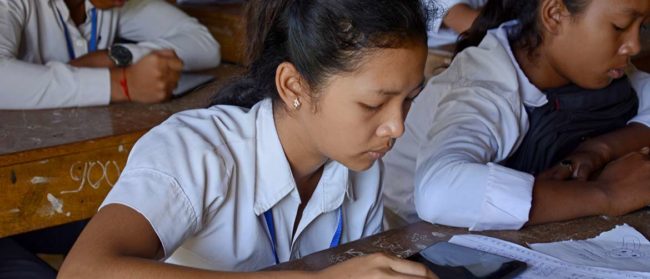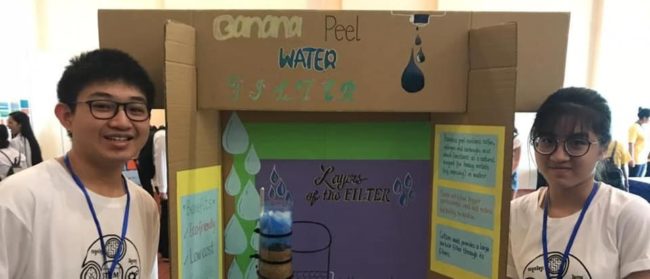Traditionally, students are taught to achieve good grades and graduate with credentials. However, in a rapidly changing world, the ability for an individual to embrace change, adapt and reinvent the wheel is far more essential in navigating the future. How can we prepare our children for the future, based on what we know about education today?
 Children: Getting Ready for the Future
Children: Getting Ready for the Future
Children are born future-ready. They are curious and creative. They possess the energy and drive to see through a task they are interested in. It is therefore important to provide students with a holistic education that not only focuses on their academic performance, but also gives them opportunities to maximise their potential and help them to excel in their areas of interest through co-curricular activities (CCAs) and projects.
Schools: Thinking, Collaborating & Learning the Future
In a future-ready curriculum, apart from imparting knowledge, the school nurtures their students’ innate abilities to think out of the box. The education scene is actively promoting STEM (Science, Technology, Engineering, Mathematics), ICT (Info-Communication Technology), Entrepreneurship and Leadership development. These subjects help prepare and empower the students for the future through innovation, collaboration, higher-order thinking and real life problem-solving skills. To succeed in an uncertain and complex world, the future-ready student is also a well-rounded individual. A school with a learner-centric curriculum is one that focuses on the holistic growth of the student, developing positive attitudes, habits and skillsets for the future.
Teachers: Empowering the Experts’ Learning
According to the Oxford dictionary, an educator or teacher is a person who provides instruction or education. A doctor is a person who is qualified to treat people who are ill. Both are noble professions. However, one is deemed more of an expert than the other. The key to witness transformation in the classroom is for schools to recognise and empower their teachers as experts in education. By providing avenues for educators to develop their own research and hone their expertise, they will feel inspired to create a different education experience for their students.
 Parents: Experiencing the Classroom
Parents: Experiencing the Classroom
Along with schools and educators, parents are crucial partners in the developmental journey of the child. Parents should be invited to sit in classes and engage in the same activities as their children. Like their children, parents are encouraged to ask questions. With the parents’ active participation in class, they will view the school and its educators in a different light and trust their professional judgment when it comes to their child’s education.
It Takes a Village to Raise a Child!
Educating our children to be future-ready goes beyond content knowledge. It is also developing the child’s character, values and higher-order thinking skills that will allow him/her the capability and resilience to succeed in the 21st century and beyond. It is developing an education experience where schools, education professionals and parents work hand in hand towards cultivating leaders of tomorrow to lead with their heads, hands and hearts. It is providing an environment where the child is constantly inspired, audacious and passionate towards pursuing endless possibilities in life. The sky is not the limit. The mind is.
Address: One Park @ Phnom Penh City Center, No.58, Street R8, Sangkat Srah Chak, Khan Doun Penh, Phnom Penh Website: www.scia.com.kh
Phone: :EN& KH: +855 (0) 61 777 818; +855 (0) 85 777 814 / EN & CH: +855 (0) 61 777 817
Email: enquiry.scia@sim.edu.sg
Read more and Discover the SCIA Education Experience here.

